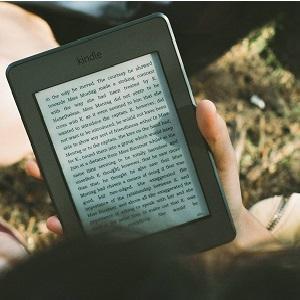Walt Disney had once famously said, “There is more treasure in books than in all the pirate’s loot on Treasure Island and best of all, you can enjoy these riches every day of your life.”

The Greater truth about books and their very essence has perhaps not been spoken in the history of world literature. Over the long years of human civilization, reading is the primary and the most important source of knowledge acquirement, for all we know. Books have been read for learning and education as well as for recreation and pleasure, and sometimes even for a mark of distinct intellect, and in every form, they have served as rewarding as the other.
Books are the old souls of civilization. For centuries, they have been the silent observers and secret keepers for man and mankind. They have told our stories and burnt for our pointless wars. From the earliest accounts of ancient scriptures like the Jewish prayer book, Siddur, the Buddhist holy text, Diamond Sutra, the Celtic Book of Kells or our own Vedas, Puranas and Upanishads to their first printed counterparts – Gutenberg and Diderot, the history of book writing, compiling and publishing has been, perhaps above all else, rich and turbulent not just of ideas and thought but of dissemination as well.

But standing in today’s world, books are rather an emotion, a sentiment carefully stacked in our bookshelves, a piece of nostalgia to be held fondly in our hearts more than anything else. This is primarily because we are running short of almost everything – time, space, patience and sometimes the will.
So are printed books destined to eventually join the ranks of clay tablets, scrolls and typewritten pages, to be displayed in collectors’ glass cases with other curious items of the distant past?
Digitalization has made our lives faster and apparently easier in almost every way, so it was only a matter of time before the fever of speed caught up with the printed pages. In the last one decade or so, there have been drastic yet somewhat significant changes that the industry had to deal with that changed the face of book-publishing for good.
The introduction of e-books and respective e-readers is perhaps the greatest milestone of them all.
The electronic book was born in 1971, with the first steps of Project Gutenberg, a digital library for books from public domain. It is nearly 40years old establishment. But this is a short life compared to the 5-century old print book. But with the advent of the internet, the game changed.
Libraries began creating websites as a "virtual" window, as well as digital libraries started stemming from their print collections.Authors began creating websites to self-publish their work or post it instead of wasting time and money to find a publisher. More and more books were published with both a print version and a digital version. Some were only digital; others were digitized from print versions.
And then came Amazon.
As the major online bookstore, Amazon.com was already selling printed books in huge numbers, thus taking the market away from small bookstores. In November 2007, Amazon launched its own reading device, named Kindle, with a catalogue of 80,000 e-books on Amazon's website. 538,000 Kindle were sold in 2008. A new version of Kindle, named Kindle 2, was launched in February 2009, with a catalogue of 230,000 e-books.

Other publishers like HarperCollins, Penguin and closer home, Landmark and Rupa Publishers also forayed into this space, following the path is shown by Amazon.
Books were suddenly no longer what they used to be.
Small, local bookshops started shutting down or had a hard time competing with these big publishing houses going digital and globally accessible. This made the cynics question the need for the print publishing of books. They even advocated getting rid of the whole procedure, thus leading to consequences like unemployment and elimination of an industry almost as old as civilization.
But can they really be blamed?
Our modern life sees every person to be in a hurry, looking for highest convenience at the lowest cost and minimal efforts. For readers, e-books come exactly with that. They are easier to purchase and store, are portable and accessible over almost any digital device, way more readily available and much less expensive, sometimes even free. E-books, in short, are modern, urban life personified.
But honestly speaking, will they ever be the same?
The smell of a newly bought book or the feel of the old and tattered, much-read yellow pages, the curled corners and funny page-marks hidden in a half-read novel, the underlines and margin-writings in a familiar hand… can these ever be compensated with artificially designed backgrounds and size 12, Times New Roman?
Will curl up with a ‘kindle and coffee’ have the same ring as a ‘book and coffee’? Can the pattering rain on your window pane play the perfect partner to your tab as it is to your book?

My wild guess will be – NO.
Because words are fine, but can you really digitalize emotions?
There are certain emotions involved with the very existence of the printed books and their bindings and covers.There is a joy in organising one’s messy bookshelf and ending up spending the time going through old, familiar books and new, unknown ones. There is a legacy in passing down books from one generation to the other as a precious heirloom. There is nostalgia trapped in the high racks of libraries and the dry, musty smell they have. Who doesn’t have fond memories of wandering around in book-fairs, looking for the latest release of the favourite author?
I am not saying that I do not get a mini-heart attack every time I turn an original publication to check out its price, and secretly look up for its PDF version on Google. Neither am I saying that going as paperless as possible to save trees, and in turn save lives is the worst idea we could have come up with.
But I do believe that money cannot set the benchmark for everything. And for the rest, there are a bunch of organisations and mobile apps that have started the business of reselling second-hand books, thus initiating a process of recycling and saving everyone some money and oxygen while at it.
And as a final defence from a bibliophile and lover of pages you can turn with fingers, you cannot sign e-books with ‘Love, forever’ and gift them to the people who matter and see their faces light up with a smile.
If you are a Bookworm then some of these accessories are a must buy for you.Read our blog
Five Accessories Every Bookworm Must Own

